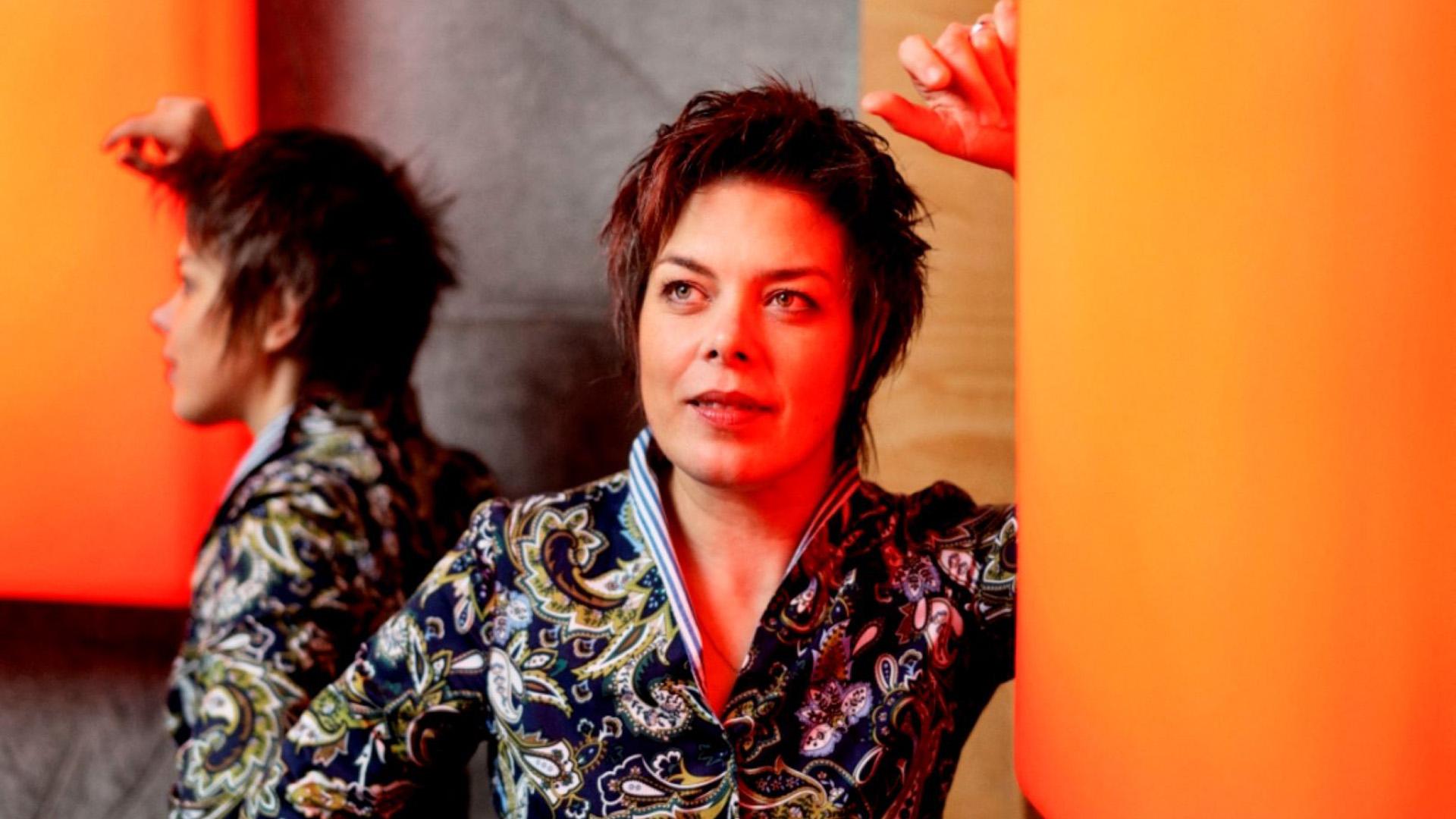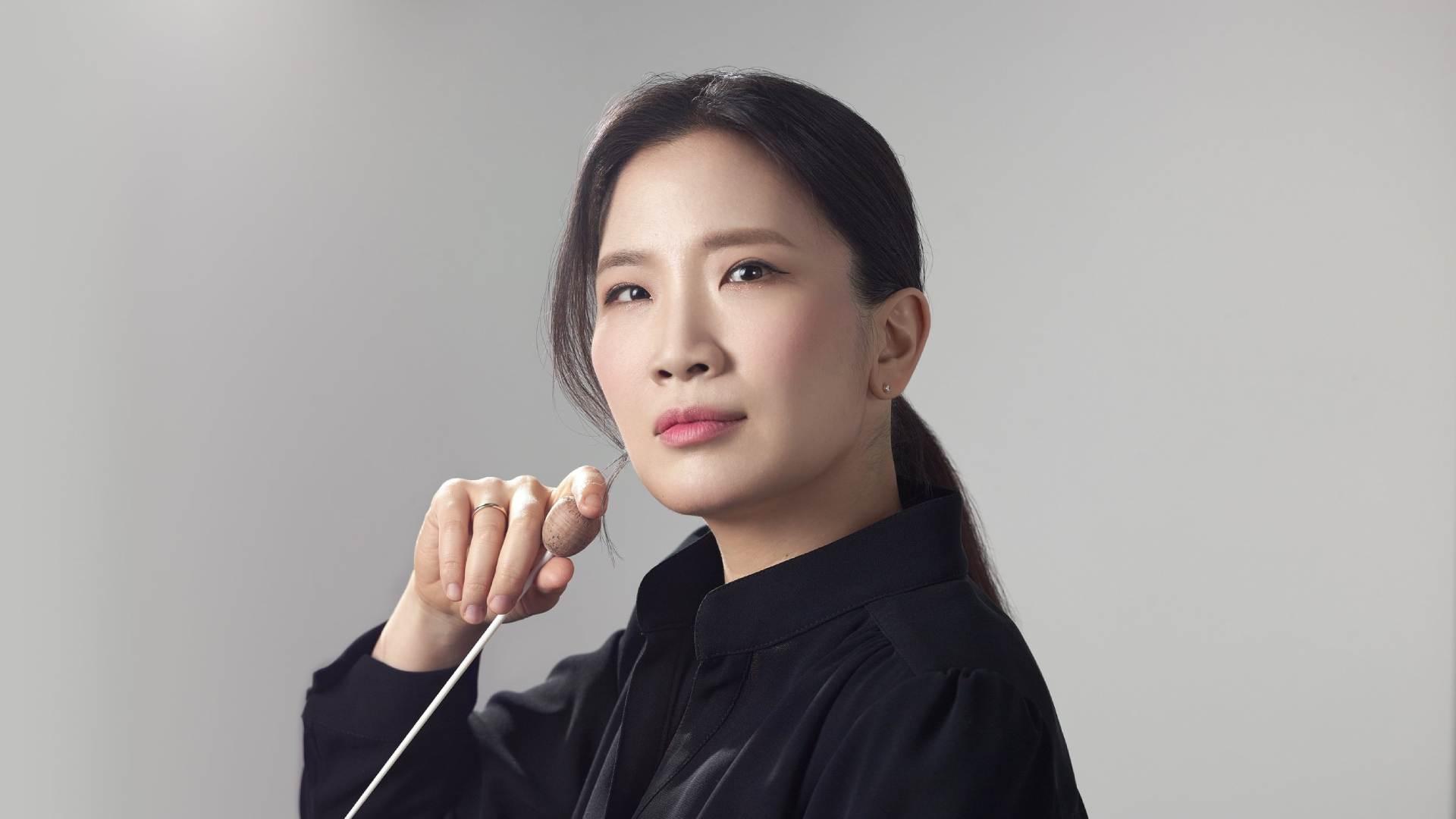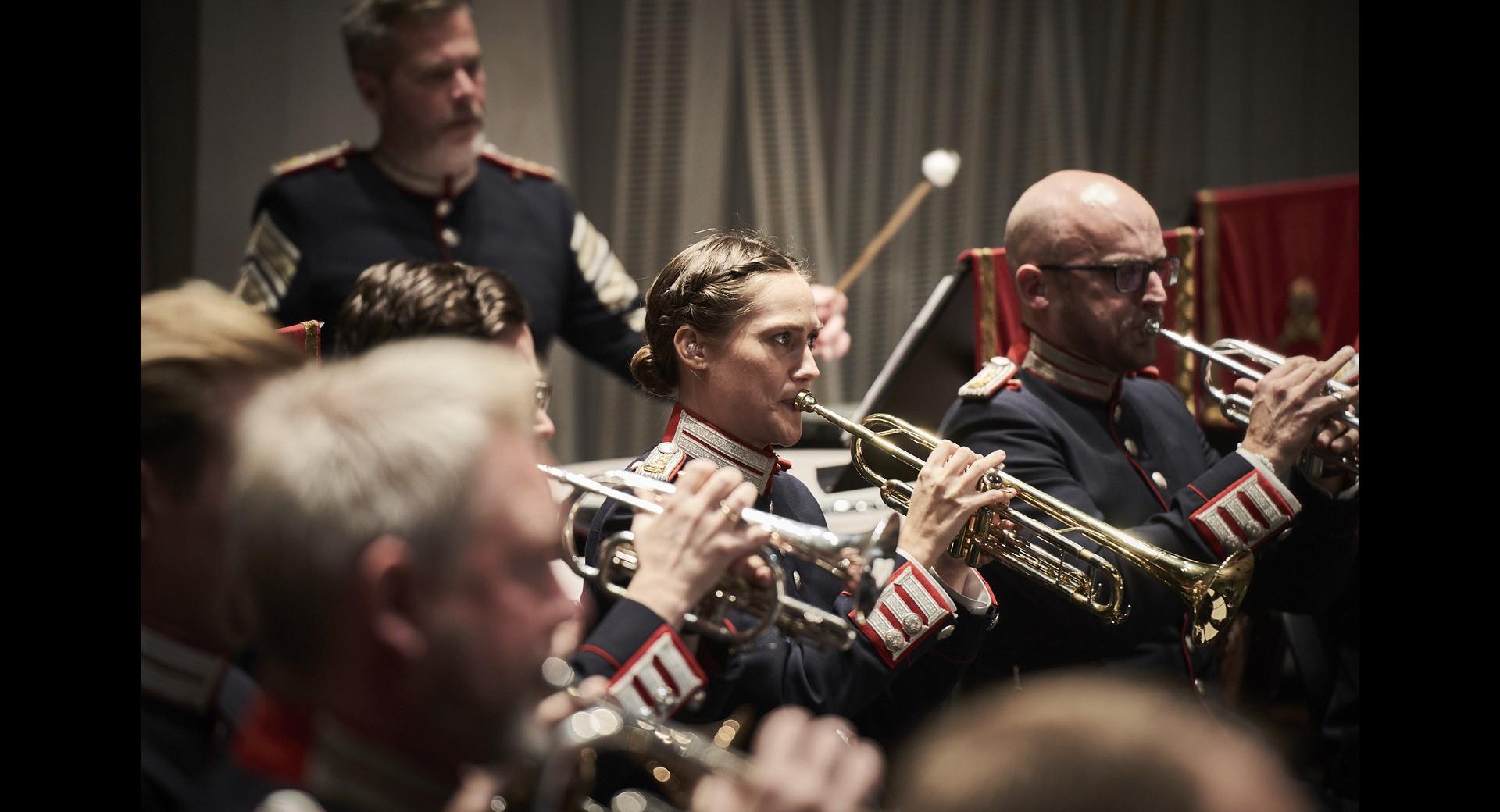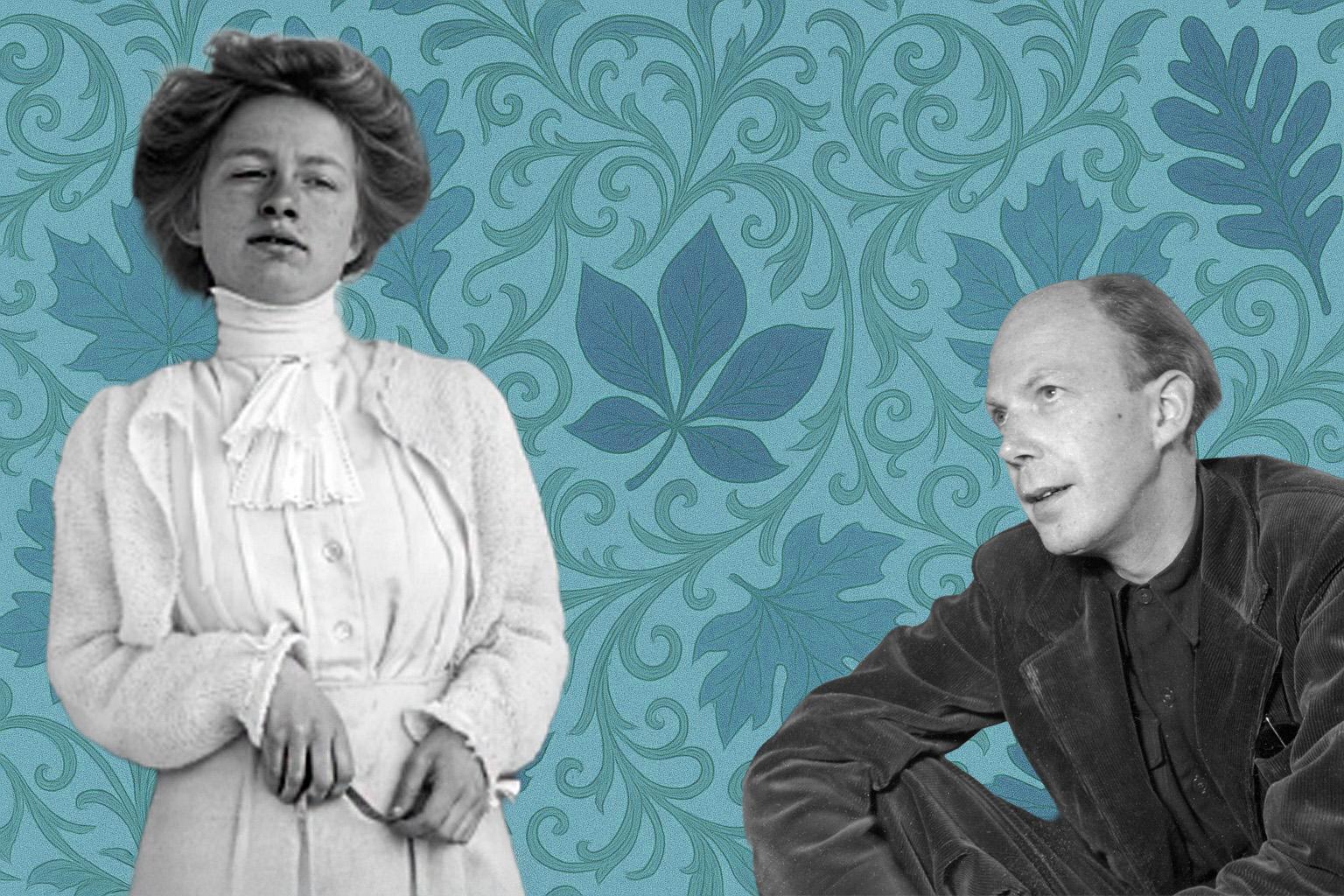Mozart’s Don Giovanni
Peter Mattei, Malin Byström, Andrew Staples and other world-famous soloists join the Swedish Radio Symphony Orchestra and members of the Swedish Radio Choir in Berwaldhallen in this unique staging of Mozart’s famous opera. Don Giovanni is a beloved staple of the operatic repertoire that has inspired generations of composers, writers and philosophers. The opera’s light-hearted elements are tempered by sorrow, drama and – in the unforgettable finale – supernatural horror.
This production is part of one or more concert series.
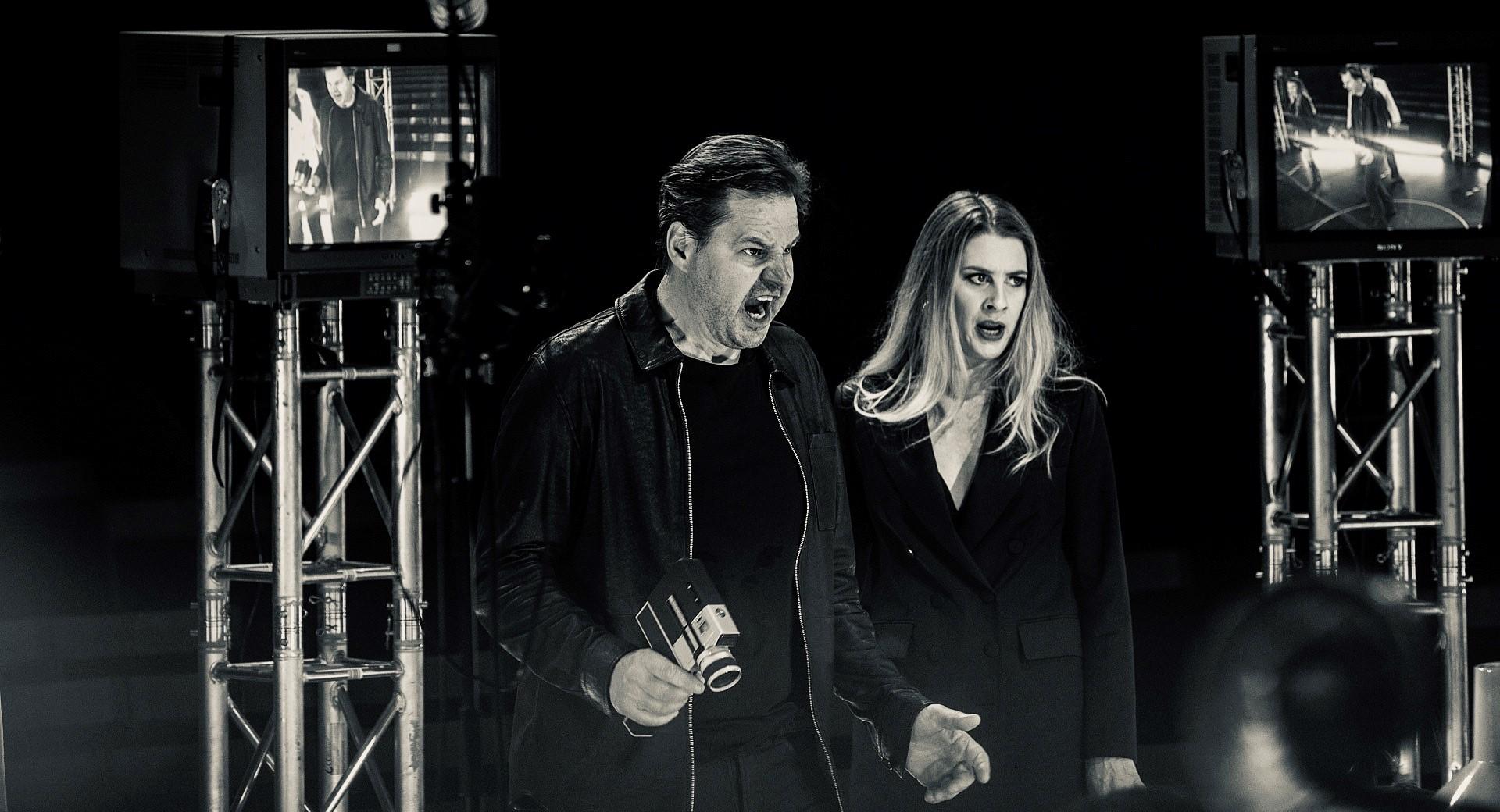
The performance is broadcast on Berwaldhallen Play
It was recorded in Berwaldhallen without an audience on June 13, 2020.
In partnership with Medici TV.
“In this staging of Don Giovanni, we explore the darker side of a reliance on screens and the remote image. In this world, Don Giovanni desires to capture and curate the moment of seduction. As with an addiction, he is compelled to repeat and refine these methods with as many people as he can.”
Thus, Andrew Staples describes the setup of this version of Mozart and librettist Lorenzo Da Ponte’s masterpiece. Staples not only sings Don Ottavio, but also directs the opera. The staging has been developed in close collaboration with costume designer Helle Carlsson and set designer Bengt Gomér. “This production will be a triumph of collaboration”, says Staples. The opera has been adapted to not only the conditions of Berwaldhallen, but also those of our current situation.
In the 17th century, Spanish playwright and poet Tirso de Molina published The Seducer of Seville and the Stone Guest, the earliest dramatization of the story of Don Juan, as he was originally called. De Molina wrote hundreds of plays, while simultaneously serving as a Roman Catholic monk.
De Molina portrays Don Juan as an egoistic, morally corrupt libertine. He does not hesitate to cheat and deceive people; even commit murder, in order to satisfy his desires. Don Juan captivates and seduces, but when the spell is broken, he makes enemies of everyone around him. “The characters are drawn to him against their better judgment,” Andrew Staples says. “He exerts a gravitational pull on those around him.”
Today, it is hard not to draw parallels between the fictional character and real sexual offenders. In a post-me too world, we cannot ignore that real-life Don Juans walk among us, and even if reality catches up with some of them, many peoples’ experiences are never revealed.
Additionally, Don Juan – the charismatic, unrepentant conqueror – could paradoxically be turned into a sort of idol by men who feel disregarded, unwanted, that they drew a blank in life. Security services in many countries caution against the growing, online-based incel culture where misogyny and glorification of violence has supplanted valuable support groups and constructive advice for lonely and frustrated men.
In a world where the assertive, physically attractive, popular man remains an ideal, idolising a character like Don Juan is appealing. However, that includes turning a blind eye to the fact that his apparent prosperity is just that – an apparition.
Here, Don Giovanni is told as a socially distanced, up-to-date drama. Characters as well as performers are separated, figuratively and literally, by screens on stage. However, physical distance does little to relieve our psychological vulnerability. On the contrary, many suffer daily at the hands of people who express and execute hideous offenses under the internet’s perceived veil of anonymity.
Andrew Staples continues: “We have imagined a world similar to the one we currently live in, where the characters maintain physical distance and satisfy their craving for intimacy and validation through their proximity to technology and its many screens.”
Don Giovanni is regarded as one of Mozart’s finest achievements. It is one of the most performed operas worldwide and the soloists performing here in Berwaldhallen have sung their roles several times before. Daniel Harding has also conducted the opera before, including at the renowned Festival d’Aix-en-Provence where Peter Mattei sung the title role, as he does here in Berwaldhallen.
Mozart classified Don Giovanni as an “opera buffa”, a genre characterized by comical scenes and roles in identifiable, everyday situations, as opposed to “opera seria” which generally treats historical or mythological topics. Looking at it today, perhaps Don Giovanni is something in-between. Rather than undermining the gravity of the plot, the lightness of the music can potentially amplify the tragic and horrific elements, not unlike a thriller or horror film. Andrew Staples describes the opera as complicated and ambiguous and that today, more than ever, it is worth hearing – and discussing.
David Saulesco
Approximate duration: 3 hours
Director Andrew Staples
Set and Light Design Bengt Gomér
Costume Designer Helle Carlsson
Assistant Director Aurélie Ferrière
Projection Technician Ishai Mika, Per Rydnert, Anders Granström
Lighting Technician Rickard Gabrielsson
Host, Swedish Radio P2 Sara Norling
Recording Producer Jan B Larsson
Mixing Engineer Johan Hyttnäs
Broadcast Engineer Peter Flodby
Video Director Karl Thorson
Score Supervisor Aurélie Ferrière
Web Manager Ulrica Stjernqvist
Deputy Editor David Saulesco
Social media Editor Joar Plunger
Don Giovanni Surtitles © Jonathan Burton 2002, rev. 2019
